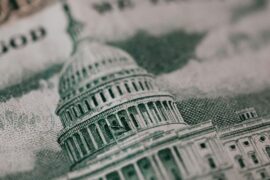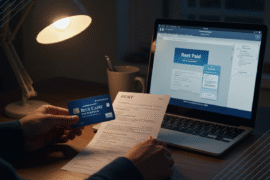This article may contain references to products or services from one or more of our advertisers or partners. We may receive compensation when you click on links to those products or services. Nonetheless, our opinions are our own.

Updated by Albert Fang
Many people in the US find themselves in a situation where they have bad credit. This can be due to various reasons, but regardless of why it happens, it’s difficult to get around if you have a poor credit score. If you need a personal loan, some places give loans for bad credit profiles, and there are various steps you can take to get by if you have poor credit.
What is a Bad Credit Score?
A bad to poor credit score is when you have a score between 350 to 660 out of a possible 850. You should try and score above 661 to be deemed financially healthy. If you have a bad credit score, it impacts various parts of your life.
Besides struggling to be approved for loans, you can also have difficulty getting approved for a rental application. Many companies do background checks before hiring new employees, and a bad credit score can impact your ability to get a job. You’ll struggle to get a cell phone contract and may have to make a security deposit on utilities. You can even pay more on insurance in some states.
Your credit record stays active for seven years, according to FICO, and your credit will be visible whenever you apply for a loan, apartment, or new job.
How Can You Improve Your Score?
If you have a poor score, there are a handful of things you can do to fix it.
Check Your Score
You can use the FICO website to check your credit score. It’s good to stay updated with what’s going on in your finances. Look at what is helping your score and what is negatively impacting it.
Look at your payment history and whether you make all your payments on time. How much credit is available for your use and how much you’re actually using also has a huge impact. How long you’ve had credit available and the variety of credit you use also impacts your score.
Make Payments on Time
One of the biggest factors influencing your credit score is missed payments, counting 35% towards your final score. Even if you miss it by a few days, it can show up on your report as a missed payment. You can set up an autopay function with your bank to ensure that bills like student loans and car payments are always paid on time. You can do this for all your recurring bills.
You can also change payment dates with creditors if too many bills are due on the same day, making it difficult to pay. It can take a few billing cycles to come into effect, so ensure that you still make payments while you’re waiting.
Get Your Debt Under Control
30% of your score is about your debt utilization. If you are using too much of your available credit, it reflects badly in your score. Ensure you pay off as many of your loans and other debt as possible, or look into debt consolidation to make payments easier.
Avoid New Debt
New debt applications can negatively affect your score if you focus on increasing it. 10% of your score is about new debit applications. You can make soft enquiries, which won’t affect your score, but a hard enquiry, where the lender checks your score, will impact it.
Final Thoughts
Even though having a bad credit score can negatively affect your day-to-day life, it doesn’t have to be a permanent problem. While it can take a few months to a few years, you can improve your score by being disciplined with your finances and taking a few easy steps.

Reviewed and edited by Albert Fang.
See a typo or want to suggest an edit/revision to the content? Use the contact us form to provide feedback.
At FangWallet, we value editorial integrity and open collaboration in curating quality content for readers to enjoy. Much appreciated for the assist.
Did you like our article and find it insightful? We encourage sharing the article link with family and friends to benefit as well - better yet, sharing on social media. Thank you for the support! 🍉
Article Title: What to Do When You Have Bad Credit
https://fangwallet.com/2022/08/19/what-to-do-when-you-have-bad-credit/The FangWallet Promise
FangWallet is an editorially independent resource - founded on breaking down challenging financial concepts for anyone to understand since 2014. While we adhere to editorial integrity, note that this post may contain references to products from our partners.
The FangWallet promise is always to have your best interest in mind and be transparent and honest about the financial picture.
Become an Insider

Subscribe to get a free daily budget planner printable to help get your money on track!
Make passive money the right way. No spam.
Editorial Disclaimer: The editorial content on this page is not provided by any of the companies mentioned. The opinions expressed here are the author's alone.
The content of this website is for informational purposes only and does not represent investment advice, or an offer or solicitation to buy or sell any security, investment, or product. Investors are encouraged to do their own due diligence, and, if necessary, consult professional advising before making any investment decisions. Investing involves a high degree of risk, and financial losses may occur including the potential loss of principal.
Source Citation References:
+ Inspo












































